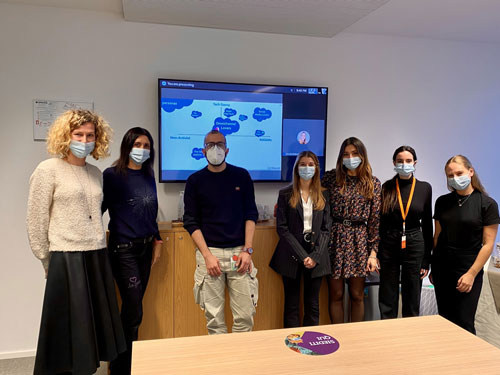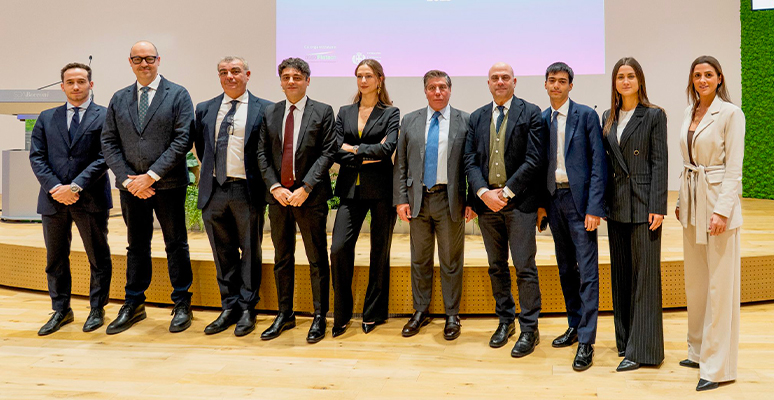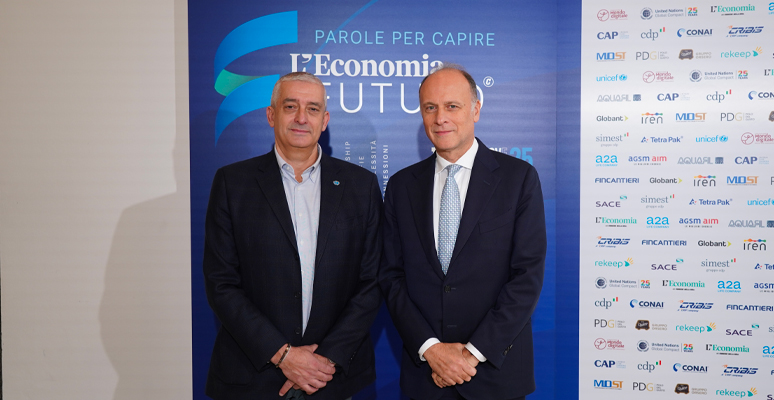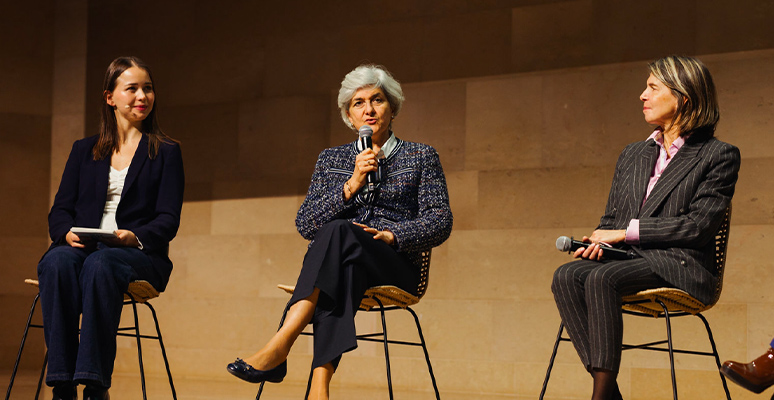An augmented and multisensory reality. Shopping according to Gen Z and Alpha
Beyond multichannel. For the latest generations of consumers – Generation Z and the very young Generation Alpha – Integration between physical and virtual stores has become a reality, and today the new frontier means adding experiential elements such as multisensory and the metaverse, as well as sustainability – broadly understood – which is becoming an integral part of product and brand value. That is what emerged from “The Evolution of Tomorrow’s Consumer Engagement,” a research project conducted by four students from SDA Bocconi’s MAFED - Master in Fashion, Experience & Design Management – Xenia Chiarabini, Noor Boutaleb, Anna Finotti and Hailey Druker – and supported by leading global CRM company Salesforce.
A key issue in the survey is the role played by brick-and-mortar stores, which have become centers of experience, rather than places to purchase. Fifty-three percent of Gen Z respondents still buy in-store, as do Generation Alpha respondents who, however, see less and less of a clear line between e-commerce and physical shopping. This changes the function of salespeople, who are bound to become “expectation managers” who are able to provide personalized advice.
The increasingly close interaction between shopping and digital technology is not just about e-commerce. The widespread use of voice assistants and voice recognition-based technologies – Alexa, Siri and Google Assistant – has accustomed new consumers to multisensory stimulation coming from the digital universe. The very young therefore expect their products to have a “sound identity”, which also means leveraging the ability to build stimuli that are – literally – based on the brand’s “tone of voice.”
But there is more to it. The metaverse influences the shopping experience, and brands should also adopt augmented reality in order to successfully engage the very young in these new fully digital worlds. New gaming and AR/VR platforms such as Twitch become essential because they give companies the opportunity to create awareness and value, e.g. through limited-edition products only on sale in some stores.
Sustainability has a central role – It is not “nice to have” but a “must have” condition for both Gen Z (78%) and Gen Alpha (60%). While the former is also concerned about socio-economic aspects such as working conditions (64%) and supply chain transparency (56%), Gen Alpha is more sensitive to gender equality (50%) and ethnic inclusion (40%). For both, the cost of sustainability needs to be part of the brand’s value proposition and not just a markup falling upon customers.
There is still a gap to be bridged between the expectations of the younger generations on one side and fashion and luxury brands on the other. The latter must gradually learn to intercept the big trends coming from the mass market that young consumers can no longer do without. These include speed of delivery – 20% of the Gen Alpha cluster said they would never buy from a brand that cannot guarantee next-day delivery – and the value of second hand (for 42% of Gen Z respondents, reselling and also sharing clothes and accessories are now commonplace practices) and of communities – By making the clustering of their customer base more transparent, companies would increase inclusion and induce upscaling within it.
At the end of the research one of the students, Xenia Chiarabini, commented: “I feel like there is a common misconception that Gen Alpha will think and act in the same way as Gen Z, or even as their Millennial parents, yet what we have found through our extensive ethnographic research tells a very different story.” And as to her experience while researching: “MAFED professor Erica Corbellini is not only a very brilliant and creative person but in many ways she was also key for us to successfully complete this project and obtain the results that we have obtained. Even Salesforce was incredibly supportive in sharing their resources, showing the direction of the project and helping us achieve the goals we had set for ourselves. We could not have done this without them”!
“Despite being aware of the incredible work of the MAFED team, done with outstanding professionalism, energy and creativity, we will never stop being amazed by what you can learn from new generations... really, unexpected and original points of views with powerful outcomes,” Silvia Kyselova, Channel Account Director Salesforce Italia, concluded. “Working with these students has been super inspiring to all of us”.
SDA Bocconi School of Management

At Call Tech Action, the technologies that ...

SDA Bocconi with UNICEF and Corriere della ...

Regenerating nature can save 50% of the ...



